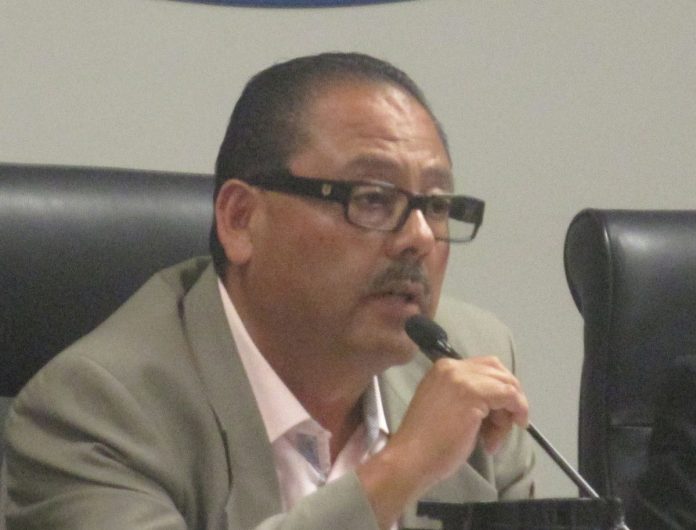An attorney for an open government advocacy group has threatened to sue National City City Councilman Jerry Cano if he does not pay what he allegedly owes the city for building code violations, and reimburse the city for an external investigation into whether he received preferential treatment.
In an April 25 letter sent to Cano and City Attorney Angil Morris-Jones, Briggs demanded that Cano “immediately pay the city all monies that are owed to it in connection with the code violations and be prepared to reimburse the city for all costs incurred by the city in connection with the investigation.”
Morris-Jones said at the April 17 council meeting that an outside investigation could cost the city between $30,000 and $40,000.
It is unclear how much Cano owes the city for his building code violations. Violations start at $100 per violation, per day and can increase up to $500 per day, per violation.
Briggs gave the city and Cano until May 10 to deliver to his office proof of payment or his client, San Diegans for Open Government, will file a lawsuit against the councilman to recover the amounts that “he has in essence stolen from the taxpayers.”
Briggs said Cano is cheating taxpayers.
“It appears he did not pay money owed years ago,” Briggs said. “He must make taxpayers whole.”
Cano did not respond to messages seeking comment for this story.
The Star-News reported March 15 that over a five-year period Cano was issued 12 building code violations for non-permitted construction at his Mary Lane home.
Despite the violations, the city never issued Cano fees or penalties for those violations; instead, the city filed a Notice of Recordation against his property in 2015 while Cano’s property still remains out of compliance.
This sparked a public outcry during City Council meetings as to whether Cano avoided fees and penalties because of his position with the city while everyday citizens were fined and penalized for noncompliance.
In the same April 25 letter, Briggs requests an appropriate investigation into allegations that Councilman Cano received preferential treatment from the city.
“My client is concerned, first and foremost, with ensuring complete transparency and accountability on all aspects of the preferential treatment that the city gave to the councilman,” it reads. “While recent media coverage indicates the City Council has authorized the city attorney to hire an independent investigator on the matter, my client remains concerned that the investigation, as well as the response thereto, will be inadequate, the letter states.
Briggs also requests that once the investigation is concluded and the recommendations are made, the final report must be shared with the City Council and the public. The City Council must then consider the recommendations at a public meeting, hear the public’s input and respond accordingly.

